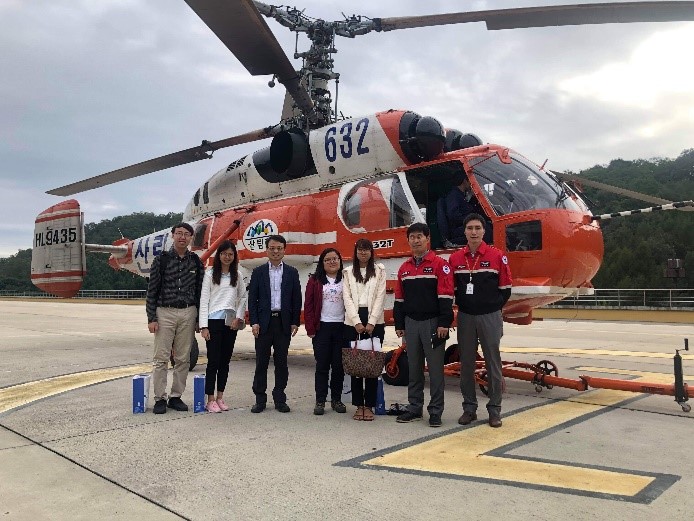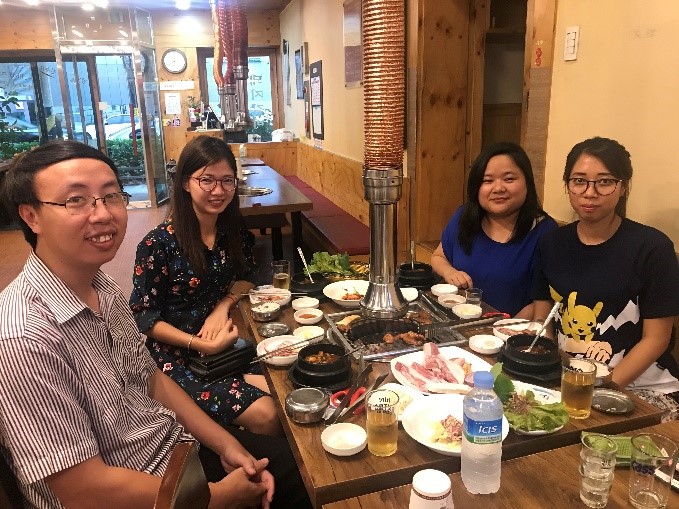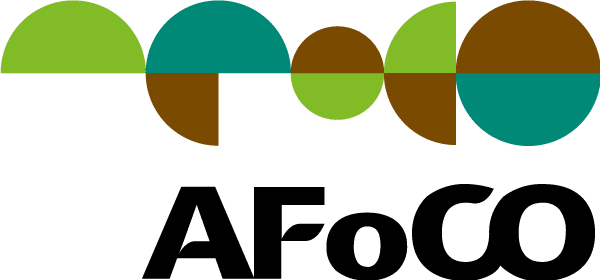Life as a Fellowship Official at AFoCO
On 20 December, AFoCO held a Certificate Award Ceremony to extend our appreciation and congratulations to our fellowship officials for completing the 2019 AFoCO Fellowship Program. Ms. Kemly Ouch (Forest Administration, Cambodia), Ms. Kinley Dem (Department of Forests and Park Services, Bhutan), Ms. Thet Myat Yadanar Aye (Forest Department, Myanmar) and Mr. Nguyen Xuan Huu (Vietnamese Academy of Forest Sciences, Viet Nam) have contributed their expertise through various projects and events over the past six months and forged precious friendships during their time in Korea. Hear what they have to say about their experiences and life in Korea!
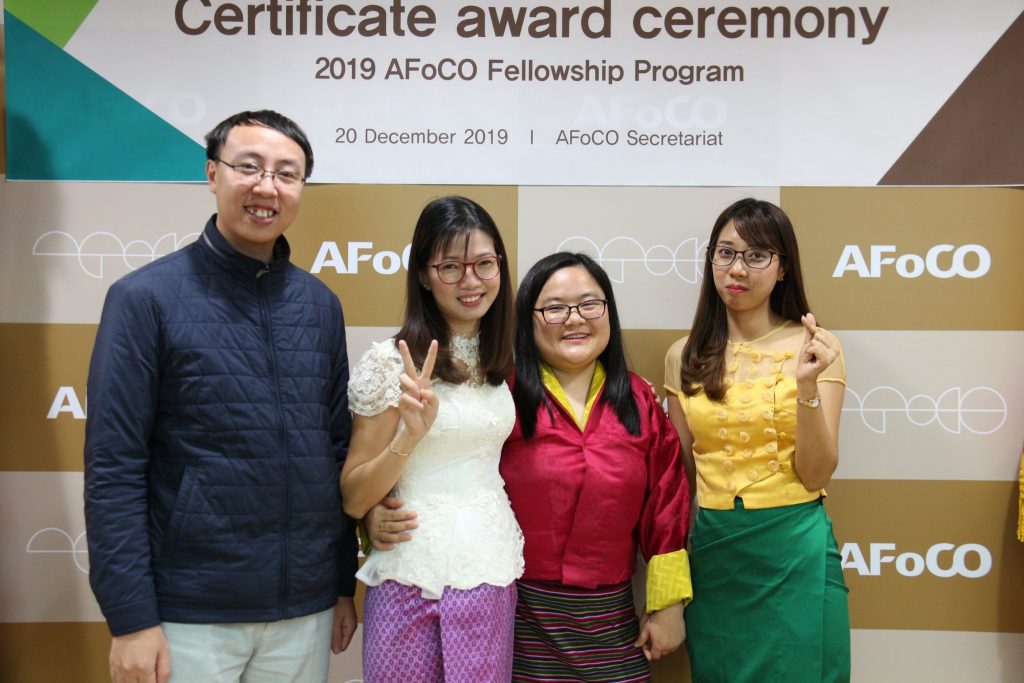
Tell us about some unforgettable moments you’ve had while in Korea!
“The Joint Workshop on Land Degradation Neutrality (LDN) and Forest and Landscape Restoration (FLR) was the first effort of cooperation activity between Asian Forest Cooperation Organization (AFoCO) and United Nations Convention to Combat Desertification (UNCCD), which organized on 30-31 July 2019, at the United Nations Conference Centre in Bangkok. Through this assignment, I gained valuable experience while coordinating the workshop and acquired knowledge about country-level implementation of the LDN as well as forest restoration initiatives at the national level, including institutional, policy, stakeholder participation and financing aspects. It gave me a larger picture of how essential land tackling and forest restoration would greatly contribute to the Sustainable Development Goals as well as the commitments of the Paris Agreement, Aichi Targets, Bonn Challenge, and REDD+. During the group discussion at the workshop, I had the opportunity to interact and discuss with other senior forestry colleagues from different countries on the guiding questions which are more focused on the existing mechanisms to implementation LDN and FLR, and identify the challenges and opportunities to synergistically achieve the country’s objectives and targets. The workshop played a vital role in mobilizing and connecting government officials from UNCCD focal points with forestry practitioners to share their views of country circumstances and help channel more efforts to accomplish the goal. It was discovered that good coordination and synergies among cross-sector stakeholders will bring more effective and efficient implementations on the ground.”
– Ms. Kemly Ouch, Cambodia
“One of the most interesting and knowledgeable part of the fellowship program was the field visits. The visit to the National Institute of Forest Science (NIFoS), Hongcheon National Forest Station and the Forest Aviation Office introduced us to Korea’s emerging leadership in forest research and technology, response to pest, diseases and other disasters. The strong coordination and cooperation amongst the offices under the Korean Forest Services are exemplary and the main reason for the strength and success of forest management in Korea…
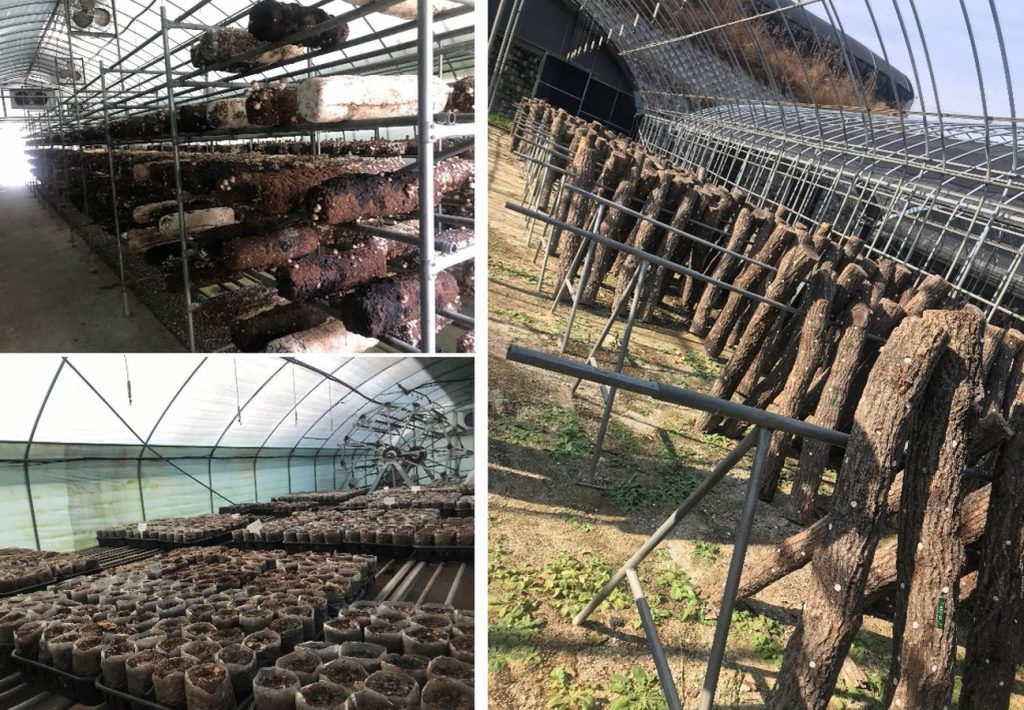
…However, it was meeting the local entrepreneur of the forest ginseng farm and the visit to the Forest Mushroom Research Center of the National Forestry Cooperation Federation that stayed the most with me. The inspiring story of a common man and his quest to promote and establish the ginseng farm inspire us in addition to inspiring the Korean youth. The visit to the Mushroom Center was equally interesting and a great learning experience. The Forest Mushroom Research Center is a forest cooperation which carries out intensive research on mushroom and develops superior varieties through production and supply of superior spawn. Mushroom is propagated using different techniques; using wood billets and sawdust spawn .”
– Ms. Kinley Dem, Bhutan
What did you take away from your time at AFoCO?
“I was impressed with the transparency and openness at AFoCO. The transparent and open communication help people feel that the things they offer are valuable and meaningful because the staff knows that what they contribute affects the organization. The Secretariat holds ad-hoc meetings an sharing sessions in addition to regular monthly meetings. This helps each and every staff member have a good grasp of what is happening and of their respective roles. Together, we brainstorm on solutions and new ideas and openly discuss new courses of action. There are also open-ended group discussions that engage people and allow us to share our views and ideas on how to best achieve the organization’s goals. Such open communication will eventually break down barriers in hierarchical or bureaucratic organizations. Finally, it promotes trust in the daily interactions between colleagues, as well as between subordinates and leaders. People become more united with the assigned task. We respect each other among employees, regardless of our official status.”
– Mr. Nguyen Xuan Huu, Viet Nam
“AFoCO taught me the importance of strengthened cooperation and coordination amongst countries for forest management and also gave me insights into Korean culture. The six-month assignment also gave me exposure to many new ideas and experience to work under different circumstances and environments and help inculcate the spirit of group work.”
– Ms. Thet Myat Yadanar Aye, Myanmar
“The six-month fellowship introduced me to Korea’s success in forest rehabilitation through institutional and field visits, literature and wisdom of the learned colleagues in AFoCO. The period also opened my eyes to the efforts put in the member countries especially the founding ASEAN countries in the implementation of the projects gearing towards global greening. I learned the grassroots level activities done by AFoCO and the member countries while reviewing project documents and progress reports thereafter. How the member countries, with limited resources, work to a larger goal of a green Asia and further a clean and green world, is noteworthy. The fellowship also provided us the avenue and skills to further strengthen cooperation and coordination in the region. “
– Ms. Kinley Dem, Bhutan
What did you enjoy most about Korea?
“Korea is a food heaven and I really enjoyed going out for dinner and maekju after work with friends. I love eating all food in Korea, starting from the shared packed lunch with my fellows and official lunches, dinners in Korean restaurants to sharing traditional Myanmar food with my friends. I personally love the Kimchi jjigae, pork ribs soup and samgyeosal. My love for pork ribs soup is known by all in the Secretariat. ED Mr. Chencho often brings us to the pork ribs restaurant or the Viet Nam restaurant, both of which are my favorite restaurants. It is very easy to find good and reasonable places to eat near our apartment in Mapo and the office . However, it is easier and faster to ask the colleagues in the office, especially Ms. Pink, who knows a lot about the must-visit restaurants and tourist attractions!”
– Ms. Thet Myat Yadanar Aye, Myanmar
The AFoCO Fellowship Program welcomes junior government officials of AFoCO member countries who are dispatched to the AFoCO Secretariat for a duration of 6 months to a year to experience working in an international organization. Operated on an annual basis, the AFP aims to establish an effective communication network between member countries and the Secretariat, facilitate close cooperation with member countries, and help improve better understanding of the working environment and procedural matters in order to facilitate the smooth implementation of projects and activities.
INFORMATION ON AFoCO FELLOWSHIP PROGRAM

